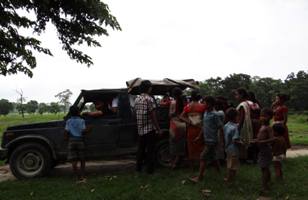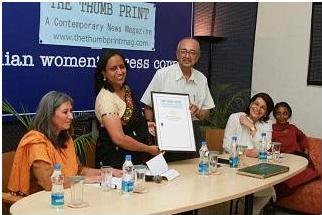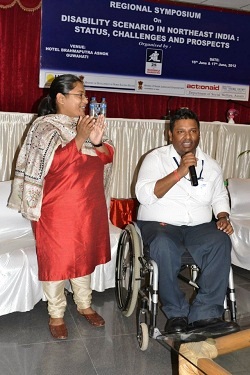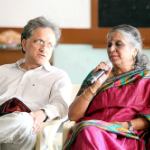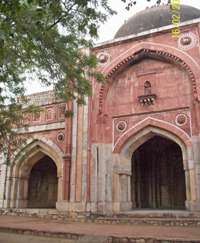Sivasish Thakur, Senior Staff Reporter, The Assam Tribune
How do you assess the conflict situation in the Northeast? Is it underdevelopment or Centre's neglect or ethnic complexities or lack of leadership or simply aversion to work and lure of easy money or outside hand that is at the core of the problems in the region?
Sudeep Chakravarti: You appear to have answered your question! A bit of everything, perhaps, though I believe your assertion of "aversion to work" is too much of a generalisation. I have seen some lazy men in the countryside, but I'm yet to come by lazy women. Seriously, though, you would know better than I that the North-East cannot be generalised in a one-problem-fits-all , or one-solution-fits-all construct. India's policymakers tried it and made a mess of it. All they have really succeeded in is to export an economy of conflict when there should be an economy of peace. They have exported the worst political and ethical practices of Republic of India to the extent that politicians and administrators and state agencies of the North-East are today as much of a problem as Government of India and its agencies. "Easy money" is not for everyone, but a select few. If government jobs, unaccounted money and kickbacks from projects are to be the way of the future, then that future is doomed.
People of the North-East must decide what is it they want, and vociferously ask for it; and determinedly vote for it; and communication and media-both "old" and "new", including social media-has a great role to play.
In Assam's case, for instance, new leadership arose from aspiration, though it's another matter that the leadership squandered trust and gains by corrupting itself completely into the power structure. These are all complex issues and apply across the sub-continent. While Government of India must be continually berated and exposed for its cynical, paranoid, arrogant, corrupted, heavy-handed, and blind-sided attitudes towards the North-East, equally the people of the North-East must berate and expose their own people who are wilful participants in this grotesque process, and claim the future that is due. Do the people of the North-east have the courage to throw out their own thieves, pillagers, de-facto dictators and bigots?
Anyway, this needs more discussion. Perhaps we can keep this conversation going and bring out more details with each interaction.
Dr Suravi Sarma, Doctor turned writer, Hyderabad
Do you think amendment of the AFSPA or withdrawal of it is desirable for the peculiar context of the insurgency in the region?
Sudeep Chakravarti: AFSPA should be withdrawn completely. There exist enough legal provisions for search and seizure, arrest, interrogation, even a fire-fight-where armed forces and paramilitary can fire upon other armed or violent combatants. AFSPA provides armed forces and paramilitary under their operational command (Assam Rifles, Rashtriya Rifles) to do as they will. It promotes great human rights violation. Moreover, what is the justification of applying AFSPA to several places in the North-east where conflict has ceased?
The UPA government's assertion to make AFSPA a more "humane law" is humbug. The prime minister made the commitment for reviewing AFSPA after great protest in Manipur in the wake of the Manorama incident in 2004. Nothing has happened even though several committees have repeatedly recommended the repeal of AFSPA. The Justice Jeevan Reddy Committee conducted numerous interviews and sought representation all across North-eastern India from all players-victims to security forces-and submitted its report on 6 June 2005, suggesting AFSPA be repealed. The government buried it. If it were not for The Hindu, which posted the report on its website, nobody would have come to know.
In 2007, the influential Administrative Reforms Commission headed by veteran Congress party member Veerappa Moily also suggested the repeal of AFSPA; suggesting instead that the Unlawful Activities (Prevention) Act be bolstered, with a provision to enable the armed forces to operate in conflict zones. The government ignored it.
The Governor of Meghalaya, Ranjit Shekhar Mooshahary (who was earlier director of the elite National Security Guards, and Border Security Force) actually said in public in 2009-he has said several times since-that AFSPA should be removed from North-eastern India in general and Manipur in particular. "If the Act is removed," Mooshahary said, "I think the situation would not worsen. In fact it will improve...The Act has made the people vulnerable. The Centre should think of doing away with the Act or applying it in a modified way." The government ignored him.
Representatives of Nagaland's bureaucracy and police officially told the Jeevan Reddy Committee that the "Act should be replaced with a more humane legislation since it has generated suspicion between the Nagas and others." Plea ignored.
The Home Secretary of Mizoram officially wrote to the Jeevan Reddy Committee: "For the people of Mizoram, the Armed Forces (Assam and Manipur) Special Powers Act, 1958, leaves a scar on their minds, and all sections of people regardless of political parties to which they belong are against this particular Act." The sentiments were ignored.
Unfortunately, Dr Sarma, the North-east is still controlled by those who benefit from the economy of conflict, not the economy of peace. I hope people of the North-east gather the courage to rapidly effect a change in this equation.
Find us on facebook: facebook.com/TheThumbPrintMag
(If you have questions for Sudeep Chakravarti, mail them to editor.ttpmag@gmail.com)
Also read:





